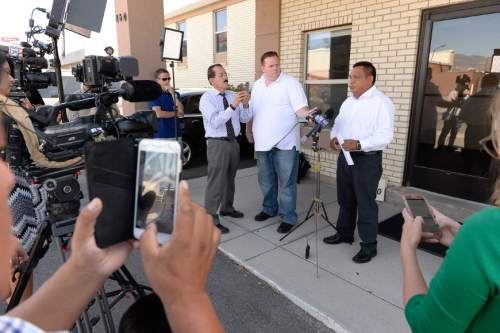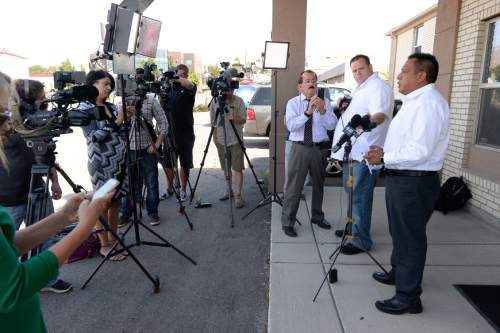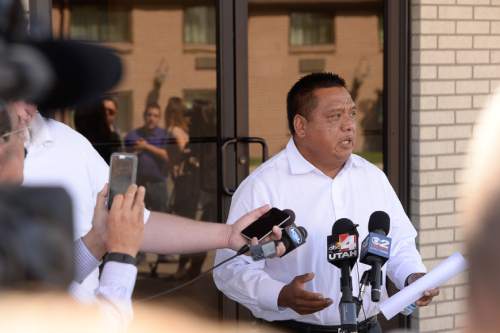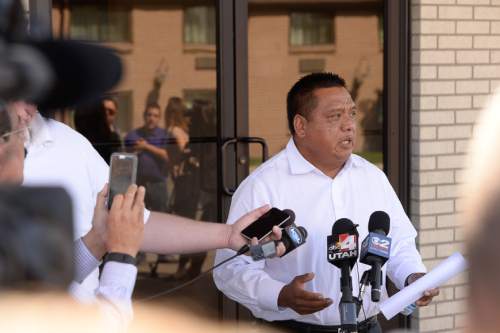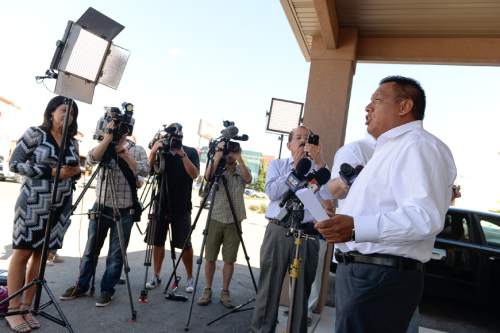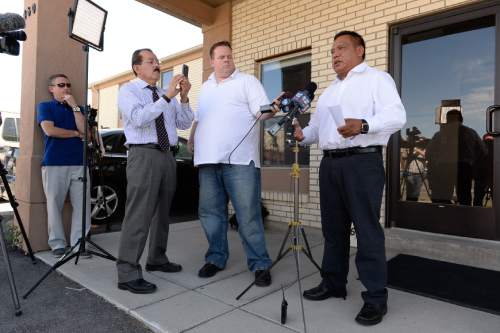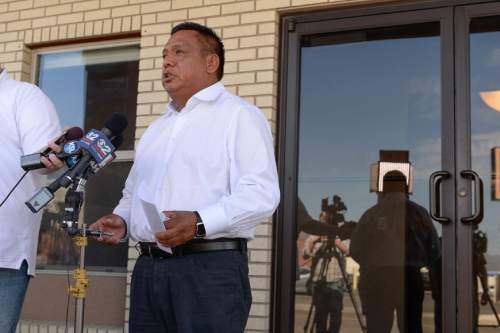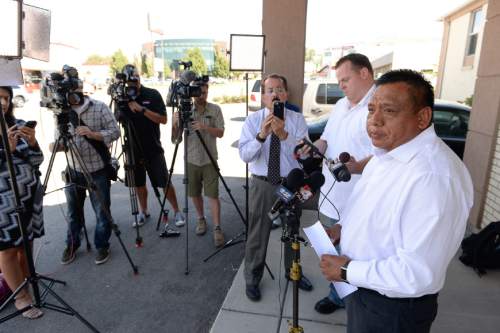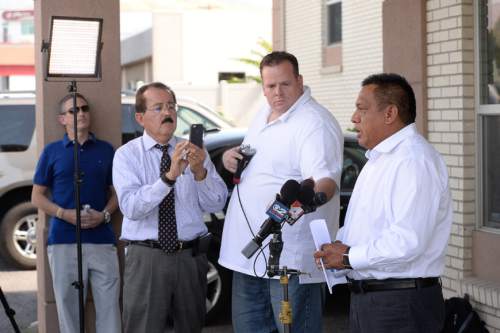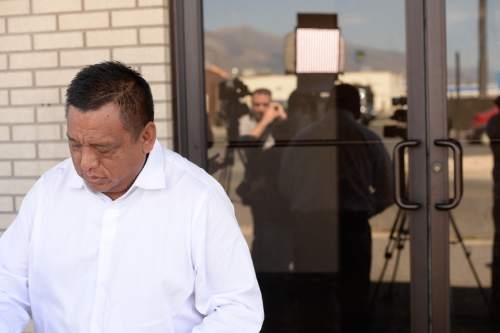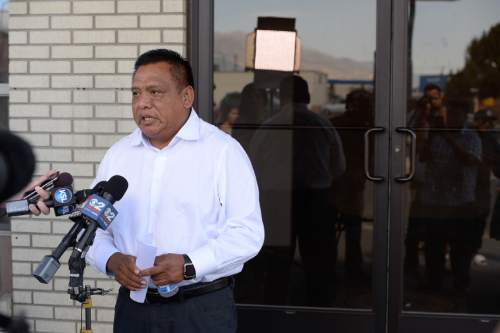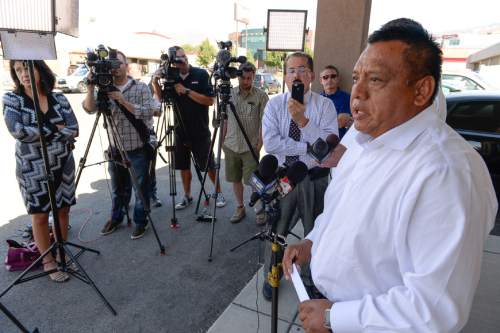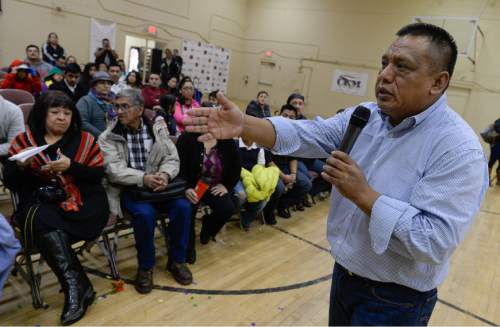This is an archived article that was published on sltrib.com in 2016, and information in the article may be outdated. It is provided only for personal research purposes and may not be reprinted.
Well-known Utah Latino activist Tony Yapias has been charged with rape for an alleged assault on a woman who had broken off their long-term relationship in March.
Yapias, 50, whose full name is Adolfo Tony Yapias-Delgado, was charged Monday in 3rd District Court with one count of rape, a first-degree felony, and one count of evidence tampering, a class A misdemeanor.
Yapias, who is from Peru, is the director of Proyecto Latino de Utah, which works on immigration and other Hispanic issues. He was director of Utah's Hispanic Affairs Office and has had several Hispanic-affairs radio shows.
South Salt Lake police arrested Yapias on Monday afternoon, police spokesman Gary Keller said, and he was booked into the Salt Lake County jail.
Salt Lake County District Attorney Sim Gill said police initially brought the case to his office, but he asked Davis County to take over. Gill said he has known Yapias for years, their paths crossing in Utah Democratic Party circles and on community work on immigration issues. Gill said he had appeared on Yapias' radio show during the previous election cycle, so he passed the case on to another prosecutor to avoid any possible conflicts.
Bail was set at $250,000, court records show.
Yapias did not immediately return a call requesting comment Monday evening. On Tuesday, however, Yapias, after bailing out of jail, posted a message on Facebook, thanking his friends for their "messages of support and blessings."
"For now, I can't say much about the case," he wrote. " ... I have faith in the judicial system."
He is scheduled to appear in court Sept. 27.
Yapias went to the woman's South Salt Lake home, court documents say — despite her admonition in multiple text messages that he stay away — on March 21 to try to talk about her decision to break off their relationship, which had lasted about four years.
"You don't get it," the woman texted Yapias, according to the probable cause statement from police that is included in the court filing.
"No I don't get it," Yapias responded, the document states. "I"ll be there," he then said.
During the exchange, Yapias, who was "well aware of the woman's immigration status," told her he was at a "meeting about immigration with representatives with Washington, D.C.," court papers say. Court documents don't provide detail about the woman's immigration status.
The woman initially refused to let Yapias into the home, court documents state, but he pushed his way through the door when she opened it to go outside.
The woman again told Yapias she had no interest in continuing their relationship and did not want to have sex.
"The defendant forced the issue and had sexual intercourse with the victim without her consent," investigators say.
Yapias told investigators that he had sex with her, according to the documents, but he said the woman consented because she removed her clothes.
Yapias later grabbed the woman's cellphone and deleted their text-message exchange as the two discussed her reasons for being angry with him and ending their relationship. The conversation took place in Yapias' car just after the alleged rape, court papers say.
Yapias told investigators he had deleted the messages, police said.
"He could not, or would not explain it," court papers say. "Unfortunately for the defendant, the text messages he deleted were retrieved by a forensic investigator."
Despite fears related to her immigration status, the woman reported the incident to police the same day, court papers say.
Working with the police, the woman contacted Yapias again by text April 4, seeking an apology.
"The defendant apologized for erasing the text messages," court papers say, and "further acknowledged that the victim had told him 'no,' she did not want to have sex."
In her messages, the woman insisted that she had refused Yapias multiple times.
"I told you NO, I don't want sex and you don't care for me, you don't think I'm hurting," she wrote, the court papers show, adding, "First you need to recognize that what you did was not right."
Court papers say Yapias responded: "That's fine. I accept. I am very sorry."
Yapias was a one-time freelance correspondent for The Salt Lake Tribune.


